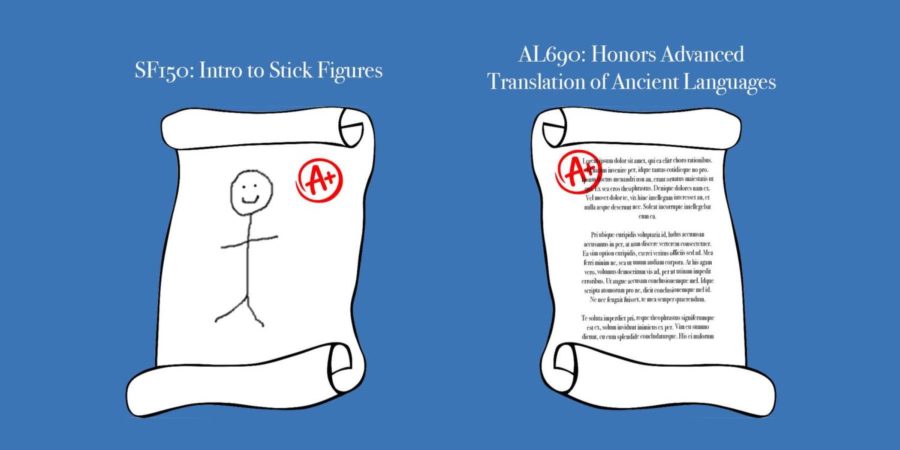Our Grading System Needs a Change
While art, athletics, and relationships can be judged with a variety of factors, our academic career is evaluated by a single number: our Grade Point Average (GPA). At the school, it is an unweighted measurement of academic performance, in some cases spanning four years, and an average of the final year grades for all classes taken at the school. We are rewarded for strong academic performance or a high GPA through recognitions including the Honor Roll, the Top Scholar distinction, Cum Laude Society and others.
Yet students’ drive and work ethic are not proportional to the rewards under our current grading system. The solution to this is clear; final grades should not be the only consideration for receiving these recognitions. The administration needs to implement a weighted grading system that takes a student’s course difficulty into consideration. A new weighted system would entail a fair, comprehensive evaluation of a student’s academic performance. It would encourage students to challenge themselves intellectually through an emphasis on work ethic, instead of just outcomes.
As of now, the hallmarks of academic achievement – high cumulative GPA, the Honor Roll System, the Cum Laude Society – neglect a vital component of a student’s academic performance: the rigor of course selections. The difficulty and the number of courses is a measurement of a student’s willingness to challenge themselves academically and their ability to succeed despite them. However, the lack of this essential factor in grade calculations has become a loophole.
The simple truth is that some students take advantage of this loophole by means of signing up for a lighter course load; and, even more outrageously, they are ultimately rewarded. The administration’s refusal to take into account this vital, missing component reinforces the message that students who do not work hard can and will still be recognized for academic achievement. Thus, students are aware that largely GPA-based recognitions, such as making the Honor Roll and being inducted into the Cum Laude Society, render drive and work ethic practically meaningless. Frankly, this grossly unjust reward system perpetuates this message every year.
A Spanish student, who requested to remain anonymous, said: “It’s demotivating to think that a hard-earned A in a high-level course, like AP Spanish, has the same value as an A for a first-year Spanish course. Even though I understand that everyone learns at their own pace, I believe a higher-level course is still objectively more difficult and should be recognized as such.”
A weighted grading system would motivate students to reach their full academic potential. It would emphasize work ethic rather than outcomes. “Our objective is to learn, not earn good grades,” Yuki Zhang ’22 said. “A good outcome, a higher GPA, should naturally follow a strong work ethic. If we had a weighted grading system, I wouldn’t worry about receiving a worse grade if I took a harder class. In that scenario, I would rather take the harder class.”
We need to expand our standards for academic excellence. Numeric grades should not be the only factor taken into consideration. The extent to which students demonstrate growth and a desire to challenge themselves should be a vital component in the school’s definition of achievement.






